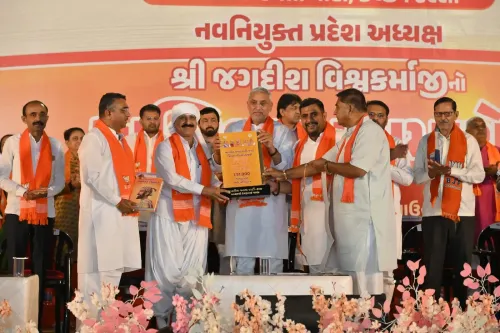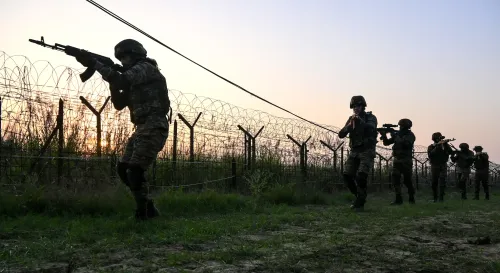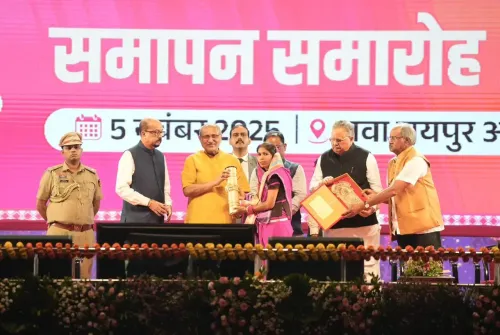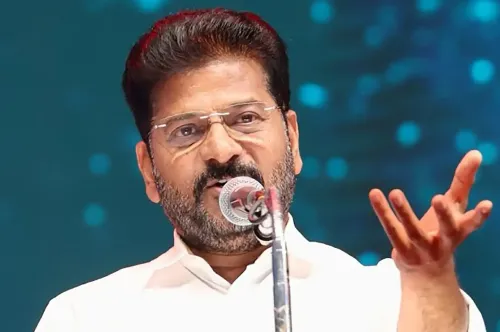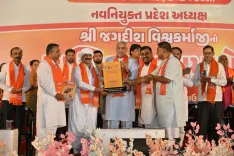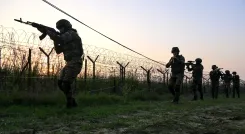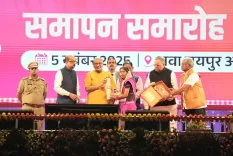'JFK, Culinary Endeavors, and Fashion Blunders': The Vibrant yet Demanding Lives of Indian Diplomatic Spouses (Book Review)
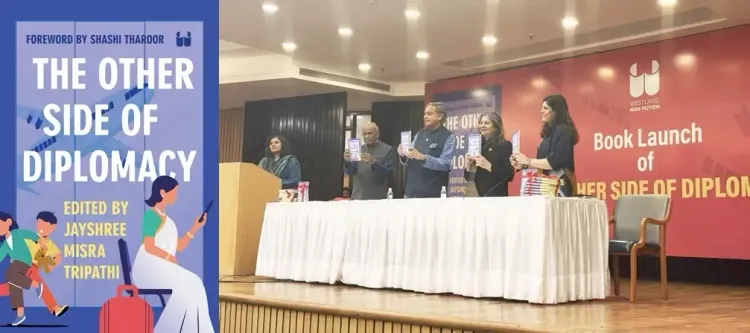
Synopsis
Key Takeaways
- Unseen Contributions: Diplomatic spouses play crucial roles beyond conventional diplomacy.
- Personal Stories: Their experiences reflect resilience amidst challenges.
- Cultural Encounters: Engagement with diverse cultures enriches their perspective.
- Historical Context: The book sheds light on pivotal historical events.
- Realities of Diplomacy: It unveils the hard work behind the glamorous facade of diplomatic life.
New Delhi, March 6 (NationPress) Within their own circles, they often remark how they seem to exclusively prepare gulab jamuns and samosas in large quantities for formal events, but India's 'informal diplomats' consistently showcase their skills. Take, for instance, the wife of a missing diplomat, who, during the 1965 conflict, was under house arrest in Dhaka with her young son. She made sure to destroy sensitive cypher books and managed to persuade her Pakistani captors to treat her with respect.
Despite the term 'diplomatic baggage', which a Western diplomat humorously uses to describe spouses, the wives - and occasionally husbands - of Indian diplomats have long served as the frontline of diplomatic and soft power representation in the countries they inhabit. These spouses engage with everyday people - be it through shopping, cooking, or cleaning - rather than being confined to the elite realms of chanceries, ministries, and think tanks where traditional diplomats usually function.
These spouses have numerous captivating stories to share - from discovering another side of President John F. Kennedy through his interest in Indian cinema (spoiler alert! not Hindustani), to the initial meeting of university alumni that set the stage for the creation of Bangladesh five years later. They also include orchestrating large-scale defections of diplomats and maintaining their composure during a fashion mishap in Switzerland, as elaborated by Jayshree Misra Tripathi in her book 'The Other Side of Diplomacy' (Westland Non-Fiction, 184 pp, Rs 599).
A diplomat's spouse with experience across four continents, she emphasizes that 'for far too long, the voices of diplomatic spouses have gone unheard' despite the upheavals in their personal and professional lives and the challenges they face in unfamiliar and uncomfortable environments, all while striving to uphold the nation's dignity in this 'unsung, unofficial role'.
However, this is not her only motivation for compiling this book, which took 'many years to complete'. Drawing from invaluable firsthand accounts and experiences of 15 diplomatic spouses, including two husbands and occasionally daughters - all distinguished in their own right - the book ensures that these stories, spanning the USA and the Soviet Union in the 1960s, a developing China, and encounters with figures like Nelson Mandela, King Juan Carlos of Spain, and Robert Mugabe, do not 'fade into oblivion'.
As diplomat-turned-politician and author Shashi Tharoor notes in his foreword, readers may initially perceive the book as merely chronicling the experiences of diplomatic families, but those who delve further into this 'collection of intriguing viewpoints' will discover that it 'transcends such a simplistic overview'.
Ranging from the relaxed lifestyle in Brazil to the high-stress environment of Baghdad, from the cultured atmosphere of Vienna to the suburbs of Washington, this volume presents scenic snapshots not only from Switzerland but also from North Korea, Ethiopia, and Zimbabwe, and an unforgettable journey to a civil conflict-ridden Tajikistan during the latter half of the 20th century and into our current era. The book illustrates how diplomacy - for both its practitioners and their families - is far removed from the superficial allure often associated with it. Hard work, commitment, and an overarching empathy are essential traits for success, alongside a readiness to adapt to unforeseen circumstances.
Examples include hosting a large gathering of Ethiopian elites who arrived at the Indian Ambassador's residence long after a National Day reception had concluded, or preparing an Indian meal - despite having limited experience - for Pandit Ravi Shankar and his ensemble in Beijing when he expressed his reluctance to eat any more Chinese food. These are just a few of the highlights presented in this work.
Ultimately, the editor delivers a powerful conclusion that largely avoids personal anecdotes, instead painting a realistic and unembellished picture of the diverse challenges diplomatic spouses face throughout their globetrotting lives - and the effects these challenges have on them.
(Vikas Datta can be reached at vikas.d@ians.in)

